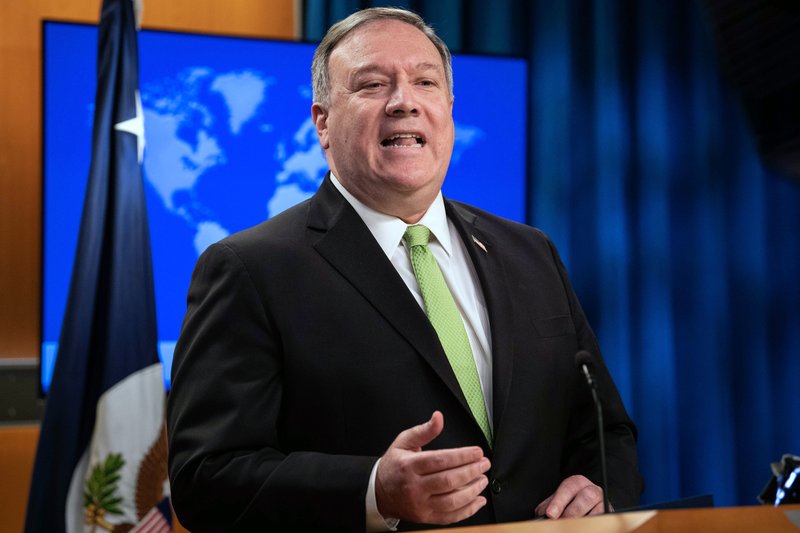Secretary of State of Mike Pompeo notified Congress on Wednesday that the Trump administration no longer regards Hong Kong as autonomous from mainland China.
The notice sets the stage for the U.S. to withdraw preferential trade and financial status that the former British colony has enjoyed since it reverted to Chinese rule in 1997.
“Hong Kong does not continue to warrant treatment under United States laws in the same manner as U.S. laws were applied to Hong Kong before July 1997,” Pompeo said in a statement.
Pompeo’s decision was not accompanied by a revocation of any specific privileges but comes amid calls for the U.S. and others to react against Beijing’s move to impose Chinese national security laws over the territory.
“Beijing’s disastrous decision is only the latest in a series of actions that fundamentally undermine Hong Kong’s autonomy and freedoms and China’s own promises to the Hong Kong people under the Sino-British Joint Declaration, a UN-filed international treaty,” Pompeo said. “No reasonable person can assert today that Hong Kong maintains a high degree of autonomy from China, given facts on the ground.”
Pompeo’s certification to Congress is required by the Hong Kong Human Rights and Democracy Act, which passed overwhelmingly with bipartisan support last year. The law requires the U.S. to impose sanctions against officials held responsible human rights abuses in Hong Kong as well as determine whether the city continues to warrant special status.
Under the terms of the Sino-British declaration, Hong Kong was to have enjoyed significant autonomy from the communist government in Beijing for 50 years starting in 1997. That autonomy was to have included protections for free speech and self-rule under what China has termed a “one country, two systems” policy.
Last week, however, after years of mounting protests against encroachments into Hong Kong’s autonomy, China’s ceremonial parliament moved to enact a national security law for Hong Kong aimed at forbidding secessionist and subversive activity, as well as foreign interference and terrorism.
Mass protests in 2014, known as the Umbrella Revolution, followed the Chinese government’s decision to allow direct election of the city leader only after it screened candidates. In the end, the plan for direct elections was dropped.
Legislation proposed in Hong Kong last year that would have allowed Hong Kong residents to be sent to mainland China for trials set off months of demonstrations that at times involved clashes between protesters and police. The legislation was withdrawn.
Earlier Wednesday, thousands of protesters shouted pro-democracy slogans and insults at police in Hong Kong as lawmakers debated a bill criminalizing abuse of the Chinese national anthem in the city. The bill would make it illegal to insult or abuse the Chinese national anthem, “March of the Volunteers” in semi-autonomous Hong Kong.
(AP)











